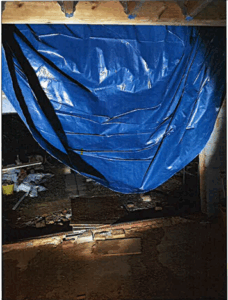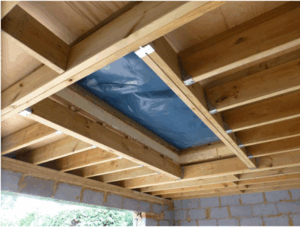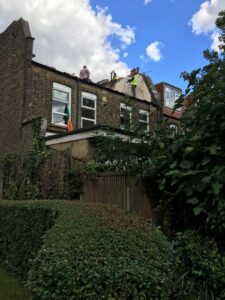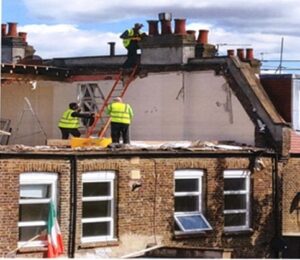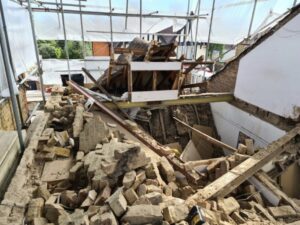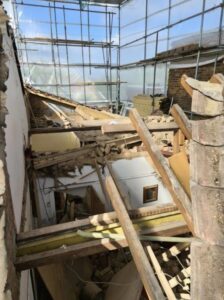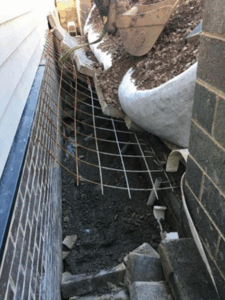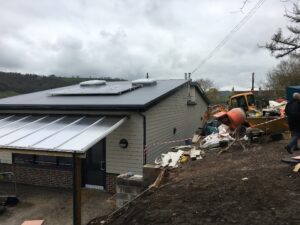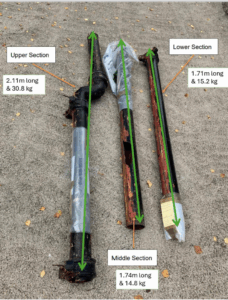Construction company fined after worker crushed by collapsing wall
- Worker critically injured after wall collapsed into excavation.
- Temporary works were not designed, planned or managed.
- HSE guidance on temporary works is available.
A construction company has been fined £100,000 after a steel-fixer was seriously injured when a newly built blockwork wall collapsed at a site in Poole.
Matrod Frampton Limited pleaded guilty at Bristol Magistrates’ Court on Friday 5 December 2025 after the incident left 69-year-old Patrick Grant with life-changing injuries.
The court heard how the breeze block wall had been back-filled too early, before the mortar had properly set. The wall collapsed while Mr Grant was working nearby, crushing him against the concrete floor of the excavation.
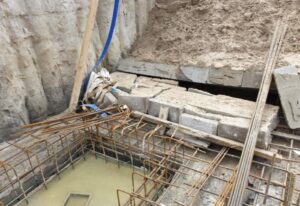
The incident happened on 19 August 2022 at the company’s site on Old Coast Guard’s Road, Poole. Mr Grant and two colleagues had started work at the lower level of the excavation when the wall at the north end gave way at around 8.30am.
Emergency services attended the scene, but there was no emergency rescue plan in place. The use of an unstable ladder to access the deep excavation delayed rescue efforts, and Mr Grant had to be hoisted out by the fire and rescue service before being airlifted to hospital.
An investigation by the Health and Safety Executive (HSE) found that Matrod Frampton Limited had failed to properly assess a foreseeable risk associated with temporary works on site.
The investigation identified that there was no temporary works design for the blockwork wall, nor for any other temporary work structures at the site. The company had failed to appoint either a temporary works coordinator or a temporary works supervisor, despite this being highlighted as a serious concern in a safety report issued eight days before the incident.
Temporary works on construction sites include trenches, excavations, temporary slopes and stockpiles, formwork, falsework, propping, shoring, edge protection, scaffolding, site fencing and signage.
Without a temporary works procedure in place, groundworkers backfilled the wall prematurely, leading directly to its collapse.
Matrod Frampton Limited, of Riverside Park, Wimborne, Dorset, pleaded guilty to breaching Regulations 13(1) and 19(1) of the Construction (Design and Management) Regulations 2015. The company was fined £100,000 and ordered to pay £8,242 in costs and a £2,000 victim surcharge at Bristol Magistrates’ Court on 5 December 2025.
After the hearing HSE inspector, Alexander Ashen, said: “The correct design and execution of temporary works is an essential element of risk prevention in construction.
“This incident illustrates what can happen when temporary works are not properly organised. Matrod Frampton Limited is an established construction company, and a temporary works procedure should have been implemented as a matter of course.
“The fact that the company’s own health and safety consultants raised this issue eight days before the incident makes this wholly avoidable event all the more tragic.
“HSE will not hesitate to take action against companies that fail to properly plan and manage serious risks on construction sites.”
Guidance on temporary works is available on the HSE website.
This HSE prosecution was brought by HSE enforcement lawyers, Iain Jordan and Rowena Goodwin, and paralegal Officer, Hannah Snelling.
Further information:
- The Health and Safety Executive (HSE) is Britain’s national regulator for workplace health and safety. We are dedicated to protecting people and places and helping everyone lead safer and healthier lives.
- More information about the legislation referred to in this case is available.
- Further details on the latest HSE news releases is available.
- Guidance on temporary works can be found here: https://www.hse.gov.uk/construction/safetytopics/temporary-works.htm
- HSE does not pass sentences, set guidelines or collect any fines imposed. Relevant sentencing guidelines must be followed unless the court is satisfied that it would be contrary to the interests of justice to do so. The sentencing guidelines for health and safety offences can be found here.

